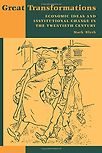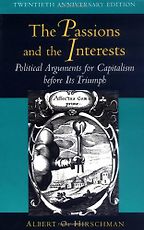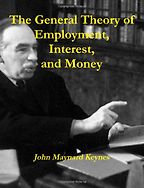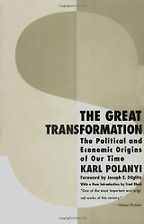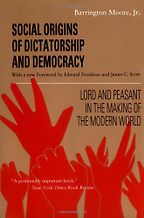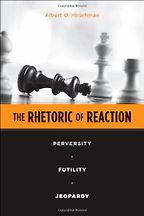The title of this interview is nothing if not ambitious. So, in a nutshell, can you tell us how the world’s political economy does actually work?
Well, it doesn’t work according to the textbooks. If you look at economic textbooks, the whole world is meant to work according to the logic of differential calculus; there are these reciprocal relationships – one side goes up and one side goes down. But deep within it there’s a paradox. On the one side you have Adam Smith, where everyone is pursuing their own self-interest leading to an outcome which is better than any of them could have intended. On the other, you have John Maynard Keynes. Today Keynes is thought of as someone who just talks about deficit spending and so on, but that’s just complete rubbish. Keynes’s central message is that individual rational action can be collectively disastrous. So, if you have a series of economic models in a text book where everything balances out, it’s much more attuned to the world working the way that Smith would like to tell us.
But what if it works the other way? That basically there are fallacies of composition and collective action problems at the base of everything, which means that your own individual best first strategy can lead to everybody having a second best outcome. That’s how I think about the world. Take climate change, for example. Everybody agrees that it’s a problem – unless you’re a crank. Why is it then so difficult to do something about it? Because everybody pursuing their own self-interest can be a really good thing, and it can lead to lots of innovation. But it can also lead to the fragilities that brought us the financial crisis and our inability to solve climate change. So where’s the space between Smith and Keynes? To me, that is where you should look for how the world works.
And these five books you’ve chosen fill in that space?
Basically, if you read these five books in order, you’ll get it. These are the five books I would take on a desert island. Not that I would read them over and over again, but if I was the last man alive and I had to leave a testament to how our world worked, it would probably be these books. They fit together as a package. The Passions and the Interests talks about the origins of capitalism as it really was. It’s a play on the following intuitive point: The way that people think about things might actually affect the way they deal with things. In the social sciences in particular, we tend to be materialist – we assume that people follow their material interests – but that begs the question as to whether you can figure out what your interests are in the first place, which is ultimately a question about ideas. At the foundation of capitalism, when the flow of ideas was very dynamic, those ideas were causal in their own right. That’s part of the story that Hirschman tells us in this book. Then we jump to Keynes’s General Theory published in 1936. This is not an easy book to read – it’s one of those books that nobody ever reads and everybody thinks they’re quoting it – and it’s an attack on the nineteenth century conceit called Say’s Law which says supply creates its own demand and therefore the amount of wages in the workplace must be sufficient to buy the amount of product produced. This suggests that any unemployment must be voluntary, which meant in the Great Depression, some 60 million people worldwide took a massive unpaid vacation for 18 years for no apparent reason. Keynes tells us about the flaws in this theory.
“These are the five books I would have to take on a desert island. Not that I would read them over and over again, but if I was the last man alive and I had to leave a testament to how our world worked, it would probably be these books.”
Polyani’s The Great Transformation was written in 1944 and in many ways is a parallel to a much more famous book, Friedrich Hayek’s The Road to Serfdom. Whereas Hayek sees totalitarianism as the inevitable result of interference in market processes, Polyani brings us back to Hirschman’s initial insight that you cannot have markets without states. He argues that a very fragile system was created that came apart in the nineteenth and twentieth centuries and produced fascism, communism and what he sees as post-war social democracy.
Barrington Moore puts this in a bigger cast. He wants to understand how states develop. He starts with a very interesting insight: The longer you wait to industrialise, the bigger your state gets. Look at Britain and America – they have small states. Then look at countries like Japan and Germany that industrialised later and they have always had much bigger states and have been prone to fascism. Then look at ones that industrialised even later, like communist China and the Soviet Union. They were and still are in China’s case, by definition, totalitarian states. So what is it about this relationship between timing, the state and the market that’s so important? This book tells us a lot about the way the world works today.
We return to Hirschman for the final book, The Rhetoric of Reaction. I love this book because it’s something we should read to remind ourselves that conservative arguments in all political and economic areas ultimately conform to the following three rhetorics: The perversity thesis, the jeopardy thesis and the futility thesis. These forms of argumentation have characterised every single conservative argument since the dawn of time. This is not to say that all conservative arguments are simply rhetorics – some of them might actually be true. But it’s always important to remind ourselves of what is mere rhetoric and what is not.
You have chosen two books by Albert Otto Hirschman. Given his importance, I wonder if you can give us a little more background on him?
He was a German emigré, part of that generation who fled Nazism. He went to the United States and was one of the founders of developmental economics in the post-war period. He fell out of love with economics in the 1960s and 70s as it became much more mathematical and when it seemed that political factors were becoming much more important in developmental outcomes than economics. He wrote about possibly every field of human endeavour and is a bona fide genius.
He seems quite hard to define. He’s referred to as a great economist, but by his own admission he wasn’t that good at maths. In his work he often refers to the work of writers such as Jane Austen and Anton Chekhov.
He was an economist in the sense of the old économistes – they were humanists rather than scientists because they didn’t believe that ultimately the world was a programmable machine.
Okay, let’s take a closer look at the first of your five books, which I believe looks at the effects of trade on social patterns.
The book isn’t really about that. There’s one section called The Thesis of Doux Commerce in which he talks about the gentling effects of commerce and the late seventeenth century French theory that trade amongst individuals polishes the manners and creates civilité, but that’s a minor part of the book.
The book is about the two notions of the passions and the interests. If you go back to the philosopher David Hume, he says “Reason is, and only ought to be the slave of the passions.” What drives and animates us as human beings is our passions. Reason should be the slave of them. The great victory of the Enlightenment was to make passions the slave of the interests and to push interests forwards. So if we think about it in the context of economics in the modern world, people follow their interests not passions. People who follow their passions are a bit weird.
What does this all mean? He takes us back to the 1700s to show that what you had at the end of the feudal and medieval world was a search for certainty. If you take away the church and the fear of death – which the Enlightenment was busy doing through the scientific revolution – you are left with the potential for anarchy. So something was needed to contain those passions. Hirschman goes back through a reading of Machiavelli and others all the way to the American Federalist Papers, where you have the notion of the balance of passions and the division of powers. He is showing us the search for Newtonisation, a search for the law-like social world, which is the beginning of the mathematical side of the social sciences.
What Hirschman is showing is that it’s all about power. This whole notion of trying to find a balance of the passions to produce interests is about a particular economic society that’s emerging which we now call capitalism. It used to be that people had interests, of course, but no one regarded them as primary. Your interests were often referred to by your ‘corporate’ interests or occupation – you were a peasant or a priest, for example. But notions of individuals having interest in money were very much frowned upon in the Christian medieval world. But all this was coming apart, and what Hirschman does is show how a series of thinkers – up to and including Adam Smith and David Hume – basically tried to find a balance of the passions but ended up creating, through the emergence of a mercantile society, a notion of self-interest which is uniquely individual and uniquely to do with money and earning cash. The notion in the whole book, which Keynes echoes in his, is that it is far better for man to lord it over his bank balance than it is over his fellow man. What capitalism does is give everyone the same self-interest, and that same self-interest gives us predictability, and with predictability you have very small, low cost government because you have self-regulating beings, running around playing the same game – the pursuit of money.
This book has all this wonderful intellectual history which tells us something important about the modern world. We didn’t always think of ourselves as individuals. We didn’t always think the pursuit of money and markets was natural. These things were constructed by people with a particular interest at a particular point in time. That interest, in many ways, had very little to do with the making of money. It was a means to an end to control people rather than an end in itself, which is where we have got to today.
Let’s turn to your second pick now, which has become a great deal more fashionable since the start of the financial crisis. Why is this work so important?
It’s the most important book of the twentieth century. What he said in this book in 1936 was that all the economics that has thus far governed the world was but one instance, one special case. He says that the entirety of classical economics, which is basically dressed up today as neo-classical economics, is only one possible world. But what, he asks, if we find ourselves in a world that’s not like that? In the book Keynes refers to the notion of a non-Euclidean geometry – that you need to work in a world where parallel lines actually meet. His book is about a world in which parallel lines meet and argues that until then economists only had the geometry that said that they never do – and that that was useless.
It’s a much, much bigger book than people give it credit for. It was reduced by Paul Samuelson and others in the 1950s down to sticky wages and counter cyclical demand management – that’s a bit like saying The Lord of the Rings is a book about people who are under five foot tall and have hairy feet. The General Theory is a series of arguments. For example, he asks why there was such high unemployment. The argument of the day was that there were jobs out there, the unemployed just had to move or accept the prevailing wage. What Keynes shows is that if everyone accepts the prevailing wage, i.e. cuts to the amount they are prepared to work for, that will lead to reduced consumption in the economy, and that ultimately will mean that the person employing them will have fewer customers coming through the door. So what will the employer do? He will end up laying off more people. So what is individually rational is collectively disastrous. In one simple paragraph, Keynes overturns 150 years of thought and shows how involuntary unemployment is possible.
He then moves on to talk about the economy being more than the sum of its parts – genuine macroeconomics. Today, there’s a whole science called complexity theory – complex adaptive non-linear systems. Keynes didn’t use that language but that’s what he was describing. He was 80 years ahead of his time. What he figured out was that we don’t know what’s going to happen in the economy and that we shouldn’t go around nationalising things and intervening, all the things that were done in his name. What he talked about was the need for a robust policy that meant that if the economy goes into a big contraction and everyone’s individually rational decision leads to a worse outcome, then you do need the state either in the form of a central bank providing liquidity or its fiscal arm stimulating demand to make sure there’s enough income being generated so that the private sector can shed its debts. Once it’s done that, the state is meant to withdraw as the private sector recovers. The state is essentially an insurance policy to allow effective de-leveraging and to make the private sector work better to get over the deep paradox that what is individually rational can be collectively disastrous.
This is an incredibly important book because it shows us that Adam Smith was only right in a special case. In relatively simple and complete markets with perfect competition, individual rationality will lead to collective superior utility. But in most of the world that we live in – this complex dynamic non-linear system – it doesn’t work like that at all, and Keynes worked that out in 1936.
Let’s move onto you next book now, by the Hungarian economic historian Karl Polanyi.
This book is a wonderful way of looking at social change in general, without it becoming a class story.
On the subject of class, I notice Marx is absent from your book list.
Marx is very important, but was ultimately wrong about certain things. I have never seen the utility of the labour theory of value – it seems to me that doesn’t explain how most markets work. I also don’t buy historical materialism.
What you get with Polanyi is a story which stretches from 1815 to 1914. He says it was 100 years of peace, although that’s not actually true because if you were a colonial subject it was hardly peaceful. However, there was no war between the major European powers. Why was this? A lot of people would say that it was the balance of power. What Polanyi says is that the balance of power between these states was an effect and not a cause. What united them all for the first time ever was what he called “peace interest,” which came from one thing – money. Where did that money come from? It came from the fact that the world was becoming capitalist. What began in Britain was spilling out across the world. States were trying to catch up with the British and you had the emergence of a global economy for the first time. What Polanyi says is that rather than things being made for personal or local use, everything was made for sale. You had, in a Marxist sense, commodity production on a global scale. And what did that mean? It meant the transformation of people into labour and the transformation of land into something that could be bought and sold globally. Money became capital. Capital became investment. Investment begat stock markets and exchanges. All of which ushered in a whole new role for the state. The paradox is that the role for the state here is duplicitous as ultimately it undermines itself.
This nineteenth century order rested upon three fundamental institutions: a limited liberal state, a self-regulating market and the gold standard. So all these countries are becoming economically integrated through trade where peasants were being made into workers or into agriculturalists who work for export markets. But there’s just one problem with this happy system. It basically takes people who customarily lived in embedded institutions and tears those institutions apart and throws them into this impersonal thing called the labour market. This huge social dislocation leads to rebellions and to vast inequalities. When this happens, the state responds in two ways – repression and reform. But the problem with reforming is that you are undermining the basic institutions of the self-regulating, liberal market state and ultimately the gold standard. This reaction that the state has to improve the lot of the majority – particularly when the state becomes democratic – runs against the liberal precepts of the gold standard and the limited liberal state. Ultimately, this causes such tension in these societies that these states begin to collapse, and the tensions build up to World War One, which was a giant nationalistic distraction to get over these problems, resulting in mass slaughter and the bankruptcy of these nations, and the depression of the 1920s and 1930s.
Polanyi writes this book in 1944, just as it seems the Allies are about to win the war. He’s not too happy. He’s glad that communism is checked and fascism is dead, but there is a wistfulness in him. He’s not a modern social democrat. If he could go back to a state of nature, a pre-industrial society, he probably would, and you have to read him with that in mind. But what he tells us is that this brave new world of the 1940s – the Beveridge report and the foundation of the welfare state in Britain etc – rests upon these paradoxes whereby you have to intervene to keep the machine stable, but the more you intervene, the more unstable you make it.
Your next book is probably best known for the catchy phrase “no bourgeoisie, no democracy.” Is this an adequate summary of its contents?
No, it’s totally inadequate I’m afraid. It doesn’t do it justice at all.
You have to put Moore in the frame with another Harvard economic historian at the time, Alexander Gerschenkron. Gerschenkron wrote about the importance of timing in industrialisation. If you look at any standard model of trade and development, there is no timeline in it. Gerschenkron looked at this and said that couldn’t be true. He argued that if you were the first country to industrialise, such as Britain, you changed the game for everybody else that came later. If you are the United States and you industrialise on a continent-wide basis and in relative isolation, when you become integrated in the world economy – as it did in the nineteenth century – your integration into that is going to change the dynamics of the system for everybody else. If you’re Japan and you’ve been living behind a paper screen for 300 years and the Americans show up as they did with modern naval warfare in the 1870s, you basically say “we need to industrialise and do it right now” and you go on an industrialisation spurt faster than anyone has done in human history. So the game changes depending on when you’re integrated into the world economy and on what terms.
Get the weekly Five Books newsletter
This is the insight that Moore takes, not regarding economics but regarding dictatorship and democracy. The early countries are stable democracies because they had no competition. That’s why they had a bourgeoisie that was able to grow and adapt and do a deal with the landed upper classes. He argues that you only get democracy when you do two things: you get rid of your landed upper classes and turn your peasants into workers, or into at least profitable agriculturalists. Without these two things, you always have bases of reaction that stop you moving forward. The later you industrialise, the bigger the role for the state. Why is this? Well, think about Japan. If Japan wanted to build its first steel mill in 1880 – something Britain had already been doing for almost 100 years – they would have had to import all the latest equipment. This costs an absolute fortune. They would also have to trial and error it until they get it right – which might involve sending people abroad to learn new skills. They would need a boatload of cash to do this. The risk involved in this would defeat any individual entrepreneur. Only by the socialisation of risk through state co-ordination does it make sense for these countries to attempt this. The first country to actually do this wasn’t Japan, it was Germany. If you look at the German industrial structure, you notice a company like Siemens was founded in 1856 and is still very large and powerful today. Many large German companies you have today were founded in the nineteenth century. They survived two world wars, partition, and they are still around. Why is this? It’s because you have this relationship between big state, big finance and big industry working as a corporatist set up. That is also the model the Japanese took. Of course in moments of stress, these very hierarchical states are prone to capture by the military. That’s why you get fascism and dictatorship. Why do you get Stalinism and Maoism? Because you are taking peasant agricultural societies, with very low levels of capital, and you are trying to integrate them into the world economy, or at least modernise them in record time so they can survive against the capitalist economies. How do you do that? You do it with an enormous amount of brutality. That is, to me, one of the most powerful stories.
Let’s return now to Hirschman and his The Rhetoric of Reaction.
The reason I ended with this is that my first four books really give you a great understanding of how the modern world emerged and its dynamics. What The Rhetoric of Reaction gives you is a warning – a warning to watch out for bullshit arguments.
Hirschman picks on conservative arguments but you could imagine that these arguments could come from the left as well, because it’s about a form of argument. He has a lovely line in the book when he says that when the same arguments have been used without much modification for 300 years regardless of the area in which they are deployed, we should be suspicious of them. And we should be suspicious of them. You hear this now in the austerity debate – “We all need to tighten our belts.” What about the fact that we are all wearing massively different trousers? Who needs to tighten their belts? And why do we need to do this anyway? Here are another couple – “You can’t live beyond your means” or “It’s just a like a family – if a family spends too much, you reduce spending.” The problem is that if every family stops spending simultaneously, every family would be unemployed. Again, it’s that paradox.
So what are these rhetorics of reaction? They are perversity, jeopardy and futility.
The classic perversity logic will say: “Look at the welfare state. It was meant to make people better off, and it just led to welfare dependents, druggies and drop outs.” Really, is that the case? Well, I grew up on welfare, and I went to free schools and a subsidised university. I am now an Ivy League professor and will pay a load more tax over my lifetime than I ever would had I been brought up with no welfare state and ended up in the army or in jail.
The futility thesis is that you might think it is a good idea to spend money to alleviate the economic shock coming from the Great Recession that began in 2007. But really what you need to do, so the arguments goes, is let things bottom out and start again because if you don’t, the job is incompletely done. This sounds convincing, but if you actually look at the 1920s, countries cut spending all at once and produced a slump that got worse and worse and led to fascism and World War Two. Is that a question of bottoming out and getting to a better place?
So with wonderful examples, he takes us through these superficially convincing logics – perverse outcomes are bound to happen, don’t try that it’s futile or if you do that, you’ll risk everything. It’s a wonderfully written book and just reminds us that so much of what passes for political and economic analysis is rhetorical bullshit.
Interview by Toby Ash
September 2, 2013. Updated: September 11, 2022
Five Books aims to keep its book recommendations and interviews up to date. If you are the interviewee and would like to update your choice of books (or even just what you say about them) please email us at [email protected]
Five Books interviews are expensive to produce. If you've enjoyed this interview, please support us by donating a small amount.

